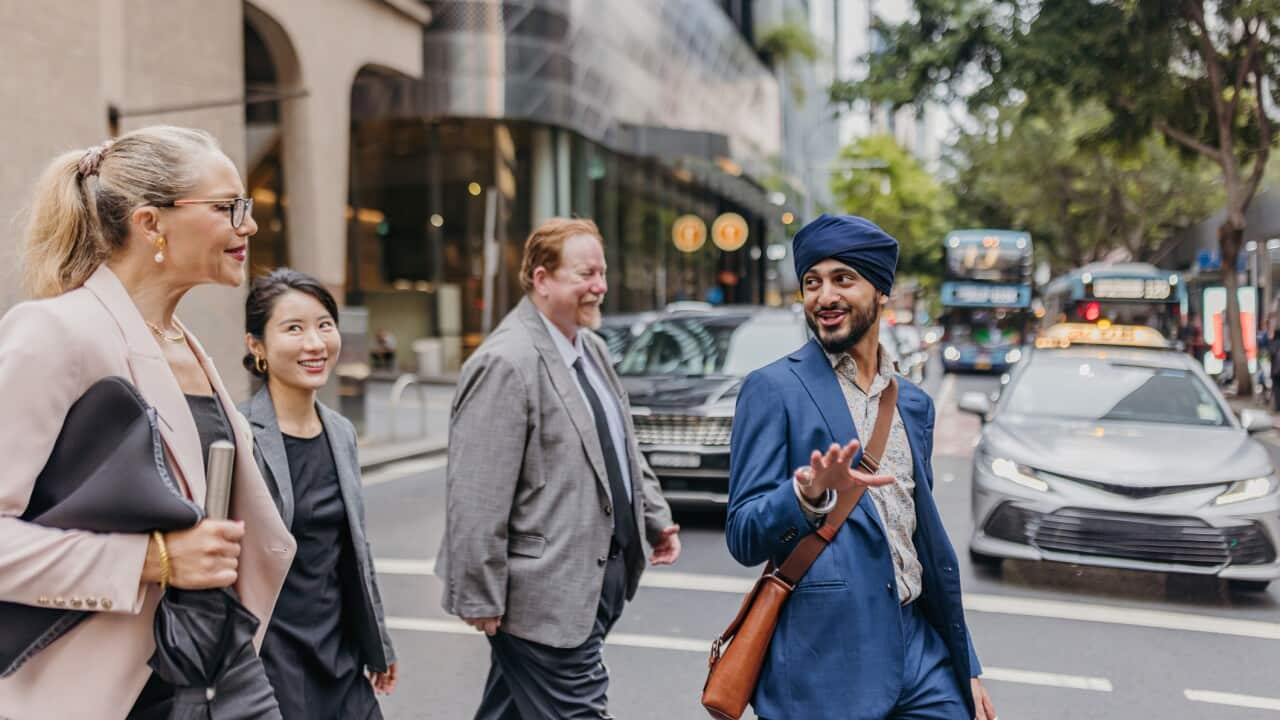Learning notes
Different phrases to use when talking about holidays:
- How was your break?
- Did you head off anywhere?
- We took a scenic route up the coast and went off the beaten path.
- We went bush.
- I took the family camping. It was pretty rustic, but the views were stunning.
- We ended up spending most of our time just soaking up the sun.
- Our hotel was modern and luxurious.
- The place we stayed was very stylish and fancy.
Vocabulary:
Over means finished.
To run into each other means to accidentally meet someone, usually someone you know.
A break is when you take time off work or school to relax or do something else, like
To head off is an informal way of saying to ‘go’ or ‘leave’.
A scenic route is a route that takes you through beautiful or interesting places. It's the most beautiful rather the fastest or most direct way to get somewhere.
To go off the beaten path, is to go somewhere unusual where other people tend not to go.
To go bush means to go into the countryside or wilderness, often for camping or exploring.
Rustic means simple and not fancy, often with a natural, country feel.
Colloquial expressions:
The post holiday blues is the sadness you feel when your holiday is over.
To soak up the sun is to relax and enjoy the sunshine.
To end up doing or going somewhere is to to do or go somewhere unexpected that wasn’t planned .
To give something a go, is to try something.
To be on the same page with someone, it means you both agree with them or understand something in the same way.
Learning focus:
In the dialogue, Allan and Claire talk about a very particular time in the past that they both know about, and so they use the past simple tense to both ask questions about what they did on their holiday (did + pronoun + verb), and to talk about what they did (verb + ed for regular verbs, was/ were for ‘to be’):
Allan: …how was … did you head off …
Claire: … we took a scenic route … and went off ….
Allan: … we went bush … took the family ….it was … the views were …
Claire: …we ended … we even tried …it was …
Claire: … I spent …….
But notice that Allan says:
Allan: I’ve always wanted to give that a go.
He uses the present perfect tense (have + wanted) because it is something that started in the past but is still continuing to the present – he still wants to give it a go! So he uses the present perfect.
Practise speaking the dialogue from this episode.

Bonus Practice: #78 Talking about holidays (Med)
SBS English
21/01/202503:47
Transcript:
(Note: This is not a word-for-word transcript)
SBS acknowledges the Traditional Custodians of Country and their connections and continuous care for the skies, lands and waterways throughout Australia.
Hi there! I’m Josipa and I’m not feeling great. I think I’m suffering from the post holiday blues.
You know, that feeling when your holiday is over, finished, and you’re back to your normal routine, but you can’t stop thinking about the good times you had?
Yeah, that’s me. Every. Single. Time.
What exactly are post holiday blues? — well, it’s when you feel a bit down or sad after your holiday ends. It’s like your mind is still on the beach, but your body is back at work!
And speaking of work, Allan and Claire are back too. They just ran into each other, that is, they met each other by chance in the office kitchen after their Christmas break.
Let’s check in on how they’re talking about their holidays!
Allan
So, tell me... how was your break? Did you head off anywhere?
Claire
Yeah, we took a scenic route up the coast and went off the beaten path. How about you?
Allan
Oh, we went bush, actually. Took the family camping in the Grampians. It was pretty rustic, but the views were stunning.
Claire
We ended up spending most of our time just soaking up the sun. We even tried some paddleboarding—it was harder than I thought, but a good laugh.
Allan
Paddleboarding, eh? I’ve always wanted to give that a go.
Claire
To be honest, I spent more time falling into the water than actually paddling.
Allan
Ha! Sounds like fun, though. Ready to be back at work now?
Claire
Eh, not really, but here we are.
Looks like Claire and I are on the same page—neither of us seems too excited to be back at work.
You can say you’re ‘on the same page’ as someone when you agree on something or think the same way about something. They seem to be on the same page as me about the idea of going back to work after a holiday!
But work we must! So, let’s start! Allan gave us two different ways to start a conversation with somebody about their holidays. He said,
How was your break? Did you head off anywhere?
A 'break' is when you take time off work or school to relax or do something else, like take a holiday. With this question, we're asking how they enjoyed their holiday or time away from work.
Allan also said,
Did you head off anywhere?
‘Head off’ is an informal way of saying ‘go’ or ‘leave’.
So, he is asking if Claire went travelled anywhere. We often use this question to ask about what people have done on their holiday or weekend.
Next Monday, for example, you could try asking your friend, ‘Did you head off anywhere on the weekend?’
Next, we learned that Claire went up the coast because she said,
We took a scenic route up the coast and went off the beaten path.
A scenic route is a route that takes you through beautiful or interesting places. It's often not the fastest or most direct way to get somewhere, but there are nicer things to look at.
I take a scenic route when I want to enjoy the great outdoors, like the mountains, along the coast, or through forests. Claire also said,
We went off the beaten path.
When you go off the beaten path, you go somewhere unusual where other people tend not to go. We use the phrase ‘off the beaten path’ when we talk about exploring new or less well-known places.
And do you remember where Allan went? He said,
We went bush.
Allan and his family went bush, meaning they went into the natural, rural, or outback areas, away from the city.
‘Going bush’ is a common Australian expression for going out into the countryside or wilderness, and often it means exploring wild places and camping out.
I took the family camping in the Grampians.
Allan took his family camping in the Grampians National Park in Victoria. Have you ever been there?
I haven’t, but it’s on my list because it has so many famous hiking trails. I’ve seen pictures from my friends, and it looks amazing.
Now, let’s practise some ways to describe places we’ve visited.
It was pretty rustic, but the views were stunning.
If a place is rustic, it’s simple and not fancy, and it usually has a natural, country feel. And stunning means beautiful and very impressive.
But let’s say your holiday destination was the opposite of rustic, then you could say,
Our hotel was modern and luxurious.
Or
The place we stayed in was very stylish and fancy.
Claire then gave us a phrase we can use to describe activities we did during our break. She said,
We ended up spending most of our time just soaking up the sun
If you’re soaking up the sun, you’re relaxing and enjoying the sunshine.
We even tried some paddleboarding.
Paddleboarding, also called 'stand up paddleboarding or S-U-P-ing, is something I haven’t tried yet, but it looks like a fun water activity. You stand on a big board and use a paddle to move across the water. Who doesn’t want to try that?
One more thing. Claire said they ended up soaking up the sun. We can say that we end up doing something or going somewhere if it isn’t actually what we planned to do.
For example, I really want to head off somewhere exciting at the weekend, but I usually end up staying at home and relaxing with a book. How about you?
Towards the end of our dialogue, Allan gave us a phrase we can use whenever someone mentions an activity we haven’t tried but would really like to. He said,
I’ve always wanted to give that a go.
If you always wanted to give something a go, you've wanted to try that for a long time but haven't done it yet. ‘Give that a go’ is an informal way of saying ‘try that’ or ‘attempt that.’
For example, I’ve always wanted to give surfing a go, which means that I’ve always wanted to try surfing, but haven't had the chance yet.
Is there something that you have always wanted to give a go?
A big thank you to our guest Mariam Farida. Paul Nicholson and Lily O'Sullivan voiced the characters of Allan and Claire and Professor Lynda Yates was our educational consultant.












